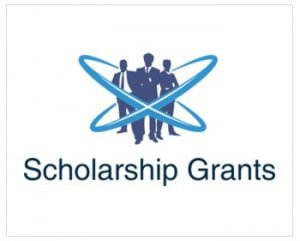University of Queensland, Queensland Brain Institute
PhD Studentship in Neuroscience (lipidomics)
Job no:498832
Area: Queensland Brain Institute
Salary (FTE):APA Scholarship NON-BANDED ($26,288.00 – $26,288.00)
Work type:Full Time – Scholarship
Location: St Lucia
Queensland Brain Institute
Established in 2003, QBI (http://www.qbi.uq.edu.au) is housed on the St Lucia campus of UQ. It is home to more than 400 staff, including 36 group leaders, working across a range of disciplines, who are focussed on discovering the fundamental mechanisms that regulate brain development and function in health and disease.
Over the past decade QBI has become one of the world’s leading neuroscience research institutes. It played a key role in contributing to UQ attaining the highest possible score of 5 for neuroscience, in the 2010, 2012 and 2015 Excellence in Research for Australia (ERA) reviews, one of only two universities in Australia to achieve this.
The role
How lipids control the way our brain cells communicate and acquire or lose memories during degeneration has remained surprisingly unclear. Our ARC and NHMRC funded laboratory is using new state-of the-art lipidomics techniques and super-resolution microscopy, in combination with biochemistry to understand the molecular mechanisms underpinning brain cell communication [1-9]. In a recent study, we developed a novel holistic and unbiased multiplex method allowing the determination of all common free fatty acids with nanomolar sensitivity [3].
The aim of this PhD studentship is to pursue our effort to characterise the change in the lipid landscape elicited by synaptic transmission, memory acquisition paradigms and neurodegeneration.
The successful candidate will join the established laboratory group of Professor Frederic Meunier at the Queensland Brain Institute at the University of Queensland and will use new generation state-of-the-art mass spectrometry or super-resolution microscopy approaches to further understand how lipids control brain function and dysfunction. To know more about the lab group and its leader, Professor Fred Meunier, please go to the following link: http://www.qbi.uq.edu.au/group-leader-meunier
1. Martin, S., et al., Inhibition of PIKfyve by YM-201636 dysregulates autophagy and leads to apoptosis-independent neuronal cell death. PLoS One, 2013. 8(3): p. e60152.
2. Martin, S., et al., Increased polyubiquitination and proteasomal degradation of a Munc18-1 disease-linked mutant causes temperature-sensitive defect in exocytosis. Cell Rep, 2014. 9(1): p. 206-18.
3. Narayana, V.K., et al., Profiling of Free Fatty Acids Using Stable Isotope Tagging Uncovers a Role for Saturated Fatty Acids in Neuroexocytosis. Chem Biol, 2015.
4. Papadopulos, A., et al., Activity-driven relaxation of the cortical actomyosin II network synchronizes Munc18-1-dependent neurosecretory vesicle docking. Nat Commun, 2015. 6: p. 6297.
5. Osborne, S.L., et al., PIKfyve negatively regulates exocytosis in neurosecretory cells. J Biol Chem, 2008. 283(5): p. 2804-13.
6. Papadopulos, A., et al., Secretagogue stimulation of neurosecretory cells elicits filopodial extensions uncovering new functional release sites. J Neurosci, 2013. 33(49): p. 19143-53.
7. Wen, P.J., S.L. Osborne, and F.A. Meunier, Dynamic control of neuroexocytosis by phosphoinositides in health and disease. Prog Lipid Res, 2011. 50(1): p. 52-61.
8. Low, P.C., et al., PI3Kdelta inhibition reduces TNF secretion and neuroinflammation in a mouse cerebral stroke model. Nat Commun, 2014. 5: p. 3450.
9. Wen, P.J., et al., Phosphatidylinositol(4,5)bisphosphate coordinates actin-mediated mobilization and translocation of secretory vesicles to the plasma membrane of chromaffin cells. Nat Commun, 2011. 2: p. 491.
The person
Expressions of Interest are invited from outstanding and enthusiastic science graduates ideally with relevant experience in mass spectrometry and/or super resolution microscopy. Candidates will have a First Class Honours degree or equivalent and should be eligible for an Australian Postgraduate Award (APA) or equivalent. Basic expertise in mass spectrometry, cell culture and transfection is required. Experience in biochemistry (eg. western blotting, pull down) and microscopy would be helpful.
Applicants must fulfil the PhD admission criteria for the University of Queensland, including English language requirements, and demonstrate excellent capacity and potential for research. Demonstration of research ability through publication output in peer reviewed international journals is desirable.
Entry requirements can be found at: http://www.uq.edu.au/study/program.html?acad_prog=7501
Remuneration
Selected prospective students will receive assistance to apply for either the APA or, for international students, an International Postgraduate Research Scholarship (IPRS). The current APA scholarship rate is AUD$26,288 per annum (2016 rate, indexed annually) tax-free for three years with a possible six month extension in approved circumstances. A top-up scholarship ($5,000 per annum) may be available to the successful candidate. For further information on scholarships refer to: http://www.uq.edu.au/grad-school/scholarships-and-fees.
Enquiries
To discuss this role and for further information, please contact Professor Fred Meunier (f.meunier@uq.edu.au) or Ms Rachel Gormal, Lab Manager (r.gormal@uq.edu.au).
To submit an Expression of Interest (EOI) for consideration, ensure you use the UQ Jobs online recruitment system by following the Apply button below. All applicants must supply the following documents: Cover letter, Complete Tertiary Academic Records (with grades/GPA scores, and official grading scale details), and detailed Academic Resume/CV.
Important: please do not send your EOI directly to the contact persons listed in this section of the advertisement. EOIs not received via the UQ Jobs online system will not be considered.
To apply, please visit: http://jobs.uq.edu.au/caw/en/job/498832/phd-studentship-in-neuroscience-lipidomics
Please note the different EOI closing dates below for international and domestic candidates leading up to the UQ Graduate School research higher degree application and scholarship round timelines as advertised on their website: https://graduate-school.uq.edu.au/scholarships
Expression of Interest Closing Dates
International candidates: 17 June 2016, 11:55pm, E.Australia Standard Time in relation to the next UQ application and scholarship round with commencement in RQ1, 2017.
Domestic candidates: 18 April 2016, 11:55pm, E.Australia Standard Time in relation to the current UQ scholarship round with commencement in RQ3, 2016; OR 26 August 2016, 11:55pm, E.Australia Standard Tiime in relation to the next UQ scholarship round with commencement in RQ1, 2017.
View this listing on the PhDSeek.com website at http://www.phdseek.com/phds/1350


